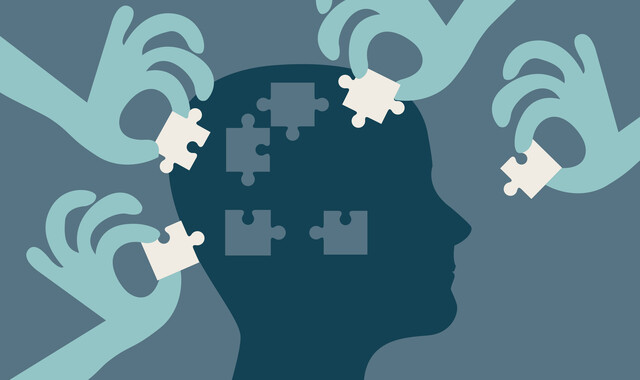Conversation Starters - the best methods and approaches to start and maintain a conversation in the workplace.
Picture this. You are sitting in a conference room or standing around a buffet table with a group of people you don't know. You notice some people are grouped together chatting amiably and others are spread throughout the room by themselves. There are at least 15 minutes until the program starts, and you know if you are going to meet any new people, you'll have to make the first move.
You fight the strong urge to pull out your phone to check your messages for the umpteenth time and decide to try to go up to a few people near you to start a conversation. After all, the reason you came to this event was to network, right?
However, you are suddenly filled with a sense of panic. "What do I say first?" you wonder. "How do I start a conversation with a complete stranger?"
We all have faced a version of this scenario at one time or another. Even though we know that in order to form a relationship -- whether it is in our business or personal lives - we have to get the ball rolling by starting a conversation, we often are reluctant to do so. Even those of us who are confident in other aspects of our lives can be daunted at the prospect of going up to someone new and introducing ourselves. Even more daunting is what to say next.
"Most people can converse with others when they feel confident and comfortable," writes Don Gabor in his book How To Start A Conversation And Make Friends. "The problem arises when comfort and confidence are replaced by anxiety and fear."
The good news is that you can learn some effective ways to start conversations, and just like any other skill, you can get better at starting conversations with some practice.
The first step to starting a conversation is to keep it simple. While saying hello and introducing yourself is a great start, an awkward silence can follow after those initial first words. Here is where you need to follow up with a way to open a door, an invitation for a dialogue to begin. Resist the urge to come up with a clever icebreaker that could blow up in your face because puts the other person on the spot.
An example of an awkward icebreaker would be asking the other person to name three unusual things he or she did that day. Let's face it. Most of us do not do anything unusual most workdays, so that kind of question will only make us feel uncomfortable.
Also do not feel you have to open with a joke or a snappy story. Be yourself, and both you and the other person will feel more at ease. Here are some steps to follow for starting a conversation at work or social situations:
Ask an open-ended question. What is important is not so much what you say first, but what you say after that. Once you have introduced yourself, it is time to ask a question that invites a response other than yes or no or another one-word answer. For example, if you ask, "How long have you been with the organization?" the other person may say, "Six months." Then you are back where you started. However, if you say, "Tell me why you like working here," you have invited a response that will draw the other person out, while offering you the opportunity to listen and then respond with your own experiences afterward.
Ideally, the conversation will flow more naturally after that point.
Depending on your location, the topic of this first question can run the gamut from the weather, to a sporting event, to the food you are being served. Keep the question in a positive framework, however. Avoid complaining about the food, for example, because that individual may be friends with the caterer. You never know! Also refrain from saying anything derogatory about the location, the speaker, or anyone else at the event.
Here are a few ideas:
- What do you think of the theme choice for this event?
- Parking was tricky for me. How did you get here?
- What do you think of the food?
- This is my first time at this event. How about you?
If you are new to the area or to the workplace, you could also ask for advice on local eateries or tips on the best times to visit the nearby health club.
Discuss the weather or non-political current events . Movies, sports teams, television shows or big news events are good conversation starters. When a big news event has happened, chances are your companions will have an opinion on it. Endeavor to stay up-to-date on what is going on the world so you can ask intelligent follow-up questions. It is a good idea to stay away from controversial topics until you know each other better, but you can't go wrong bringing up the latest heat wave or asking it someone has seen the latest action film.
If you are all in the same industry, ask what your colleague thinks of the latest acquisition or ask what he or she thinks about the new sales figures or the new branch location.
Offer help . Another way to start a conversation is by offering to help someone with something. Perhaps a colleague is fumbling with the computer set-up for the meeting, and you could ask to lend a hand. Offer to help the other person with their plate or glass at the serving table. If you see someone searching for a seat in a crowded room, wave your hand and offer them one next to you. Then ask an open-ended "who," "what," "why" or "when" question to encourage a conversation.
Another idea is to ask if you can work together on a project. An example is: "You did such a great job with the fund-raising committee last year. Would you like some help?" It is a rare person indeed who turns down that kind of help, and a lively conversation is likely to develop.
Get the other person talking . It is a truism that people enjoy talking about themselves. The key is asking the right kinds of questions to encourage people to open up about their feelings and opinions.
"What do you love about working here?" can be a great opener. Not only will you get to know the person better, but you learn some valuable information about your place of business as well. Other ideas for drawing the other person out are:
- Do you have any interesting hobbies?
- What's your favorite holiday?
- What is your favorite food?
- Tell me about your position here.
Pay someone a compliment. One of the best ways to compliment someone is to ask their opinion on something. Here are some ideas:
"I heard your great presentation last week, and it was thought-provoking. Where did you get your images for the PowerPoint?"
"You seem so organized. What's your secret?"
Or even: "That's great jacket. Where did you get it?"
Ask the meeting organizer for a list of guests ahead of time and then use social networking sites such as LinkedIn to find a perfect conversation opener. "You're Mary, aren't you? I understand we went to the same university." Or "I read your recent article on LinkedIn and I couldn't agree more. Have you written other articles on that subject?
Talk about a subject that interests you . A great way to use conversation to network is to bring up a project you have done in the past three months or that you plan to do in the next three months. The topics can range from remodeling your home to planning a vacation to buying a new car.
After you briefly explain your project, ask the other person for his or her experience in that area. By choosing a topic you already know about, you will feel comfortable talking about it. And by asking for your partners' opinions, you will be flattering to that person and will be opening yourself to the possibility of gaining new information and insights.
Listen, listen, listen. When we are nervous in social situations, some of us tend to over-compensate by talking more than usual. Let's face it, however, monologues are not conversations. Avoid filling an awkward pause in a beginning dialogue with rambling streams of consciousness in an attempt to cover your nerves.
Epictetus, a philosopher of ancient Greece, is credited with saying, "We have two ears and one mouth so that we can listen twice as much as we speak." You know how annoying it can be to listen to someone go on and on about themselves. Picture sitting next to someone on a plane -- or somewhere else where you cannot casually walk away -- who talks endlessly about his or her own accomplishments and doesn't let you get in more than a word or two.
People who are great conversationalists are really great listeners. Author Debra Fine puts it this way in her book The Power of Meeting New People: "People who excel at meeting new people are actually experts at making others feel included, valued and comfortable."
Not only does listening carefully to what the other person is saying show them respect, but it also gives you great material for continuing the conversation. Affirm their comments with a nod or with a brief comment when appropriate. When they come to a stopping point, ask a question based upon what they have told you.
As you listen, look for backgrounds or experiences you share with the other person. These "touch points" can make for great follow-up questions and can lead to the building of a relationship. We all enjoy it when we find out we have something in common with someone we have just met. The feeling of "you too?" helps us feel accepted and comfortable.
Here are a few examples of using common ground to further the conversation:
"Oh, so you are from Chicago too. I lived in Old Town for five years. Tell me where you lived."
"I have always wanted to go to Alaska. How did you manage the winter?"
"I have an art degree also. How did we both end up with this firm?"
Learn the other person's name and use it in the conversation starter. We are hard-wired to like hearing the sound of our own names. In his influential book How to Win Friends and Influence People, Dale Carnegie wrote, "Remember that a person's name is to that person the sweetest and most important sound in any language."
Using the other person's name can be a powerful tool in the art of conversation. Quite simply, when we hear someone saying our name it makes us feel valued and important, and that sense of respect is a key ingredient to any good conversation.
After the initial introductions, find ways to work the person's name into a few of your comments and questions. Here's how:
"I was thinking the same thing, James. Have you heard this speaker before?"
"So tell me, Jordan, what's the best aspect of volunteering with this organization?"
"Maya, have you tried that new restaurant across the street?"
Smile. Have you ever been approached by someone who appeared to be talking to you, but instead of looking into your eyes, he looked down or elsewhere in the room? It is difficult to connect with someone who gives off that lack of personal connection.
It may sound too simplistic to be true, but a warm smile can be your best friend when you are trying to start a conversation. In fact, a smile is the most important non-verbal cue we can give other people.
Marianne LaFrance, a Yale University psychology professor, writes in her book Lip Service that babies begin practicing their smiles while still in the womb because it is such a critical part of their bonding with their parents. A smile creates an emotional current, often a subconscious one, in people who see it, according to LaFrance.
Smiles can be interpreted (as merely friendly) or misinterpreted (as mischievous or even flirtatious), but research shows that most people prefer the "Duchenne" smile, named after the researcher who described it. The Duchenne smile involves movement of the major muscle that pulls the corners of the mouth up in conjunction with the muscle that circles the eyes. Duchenne's research shows that particular smile stimulates the reward centers in the brains of those who see it.
Study participants rate photographs of people beaming with classic Duchenne smiles, in fact, as more friendly, intelligent, attractive, kind and sincere than faces with other smiles or with neutral expressions. La France contends, therefore, that being told you have a great smile is one of the ultimate compliments we can receive.
As you learn more about starting valuable conversations, play close attention to your body language. Offer a friendly handshake and a smile! Other positive body language signals you can incorporate into your conversations include:
- An open stance or open seated position. Avoid crossing your arms or legs as it convey a closed-off kind of attitude.
- Lean in slightly. This position shows you are listening intently to what the other person is saying.
- Eye contact. Look the person in the eye as you listen and as you respond to convey your interest and engagement in the conversation and in the individual.
Practice. The only real way to get better at starting conversations is by getting out there and practicing. Find ways to strike up conversations with people in the grocery store line or at the bank. Say good morning and ask a follow-up question to that elderly lady you see in the elevator. Start a conversation with your cab driver, your hairstylist and your waiter.
You will find that the more conversations you start in these "safe" scenarios, the more your confidence will build. This boost will make it easier to transfer your new skills to the various business or social settings you encounter. You also will gain the side benefit of getting to know some interesting people and learning more about the world around you.
Psychologist and MIT professor Sherry Turkle told her TEDTalk audience in 2012 that our culture's constant connection through social media is coming at the expense of "real conversation." She said that she fears this lack of face-to-face conversation will deteriorate our relationships, our self-perceptions and even our emotions.
Nowhere is this 21st century tendency to turn away from real conversation in favor of technology more bluntly portrayed than in actress Charlene deGuzman's popular YouTube video, "I Forgot My Phone." In the video, deGuzman goes through an eerie but all-too-familiar day in which everyone she encounters from her boyfriend, to her co-workers, to a little girl at the playground is more engrossed in their gadgets than in the world around them.
Break out of the always-on-your-phone mold. You never know where you will find that new client or new business contact. By starting conversations wherever you happen to find yourself, you will open yourself up to new opportunities. If you have a chance to be at a party, meeting or conference, take it. Use your new-found skills to interact with some people you may not have otherwise met.
"Becoming a good conversationalist has an amazing ripple effect," writes Debra Fine in The Power of Meeting New People. "It will help you bring new people into your network of associates, friends, colleagues, clients, customers and others. You will get joy out of events you used to dread, and you'll create pathways and channels for opportunities to meet more people."
Don't let a conversation failure here or there throw you . Not every conversation is going to go the way you want. As you strive to start more conversations, you will undoubtedly encounter some people who rebuff your efforts and who simply do not want to talk. A few people may even be rude to you. Try not to let this rejection bother you.
That individual could be shy or have something else in mind that is distracting him or her from the conversation. Simply smile and move on.
Most people, however, will respond to your openness and friendliness and will be glad you made the first move. Remember that the goal of conversation is to connect with people and to learn more about others and the world around you.
Your ability to start and carry on a simple conversation will become invaluable in every part of your business and personal life. And who knows? That first conversation could become the beginning of a lasting friendship.
























